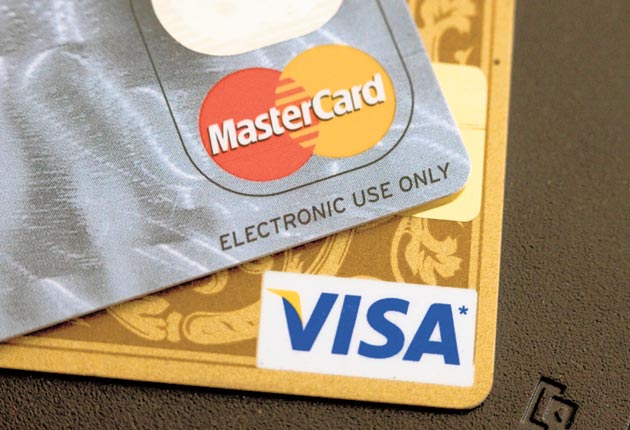Card fees to be introduced for British customers following EU rule change
As hidden fees for transactions look set to be scrapped, report warns customers the cost will be passed on to them

Your support helps us to tell the story
From reproductive rights to climate change to Big Tech, The Independent is on the ground when the story is developing. Whether it's investigating the financials of Elon Musk's pro-Trump PAC or producing our latest documentary, 'The A Word', which shines a light on the American women fighting for reproductive rights, we know how important it is to parse out the facts from the messaging.
At such a critical moment in US history, we need reporters on the ground. Your donation allows us to keep sending journalists to speak to both sides of the story.
The Independent is trusted by Americans across the entire political spectrum. And unlike many other quality news outlets, we choose not to lock Americans out of our reporting and analysis with paywalls. We believe quality journalism should be available to everyone, paid for by those who can afford it.
Your support makes all the difference.British customers will be hit with charges on new debit and credit cards if a proposed European Union rule is allowed to come into force, a report warns.
The rule is supposed to clamp down on the fees taken every time a transaction is made using cards with losses ultimately being passed on to consumers.
That could mean a fee of £11 for every new debit card, and as much as £25 for credit cards, as the international companies look to cover estimated losses of £2.4 billion.
Mastercard commissioned research by consultancy firm Europe Economics, who worked with academics at the University of Essex to tally up how much the new regulations could cost the firms who impose transaction fees.
They also found that interest rates and card fees rose when similar changes were made in Australia and Spain in 2003 and 2005.
Despite Mastercard’s objections, the UK Office of Fair Trading has supported the European Commission, which believes the so-called “interchange fees” charged to both customers and retailers are in violation of legal and ethical rulings on transparency.
While the EU rule change would impact the whole of Europe, the issue is particularly sensitive in the UK because it would see an end to the tradition of “free banking”. Most other countries see basic fees imposed on accounts, with banks instead preferring to charge less for overdraft fees and penalties.
Attempts to ban interchange fees have long been on the European Commission’s agenda, and lobbying retailers have campaigned against them with the www.stopunfaircardfees.eu website.
Mastercard, which has a net annual income of around £1.9 billion, said that while it estimated large retailers would benefit by as much as £2.2 billion, there was "no evidence that these savings are passed on to the consumer in lower prices".
As a result, they say British banks will have to start charging customers for the privilege of using their cards.
Join our commenting forum
Join thought-provoking conversations, follow other Independent readers and see their replies
Comments